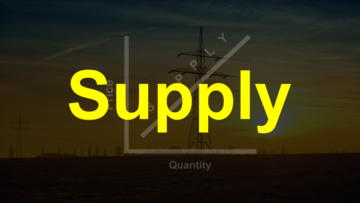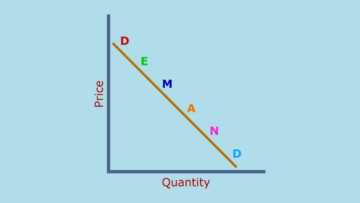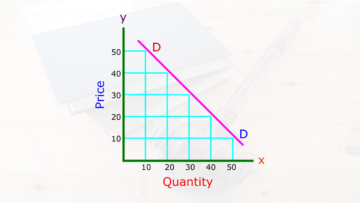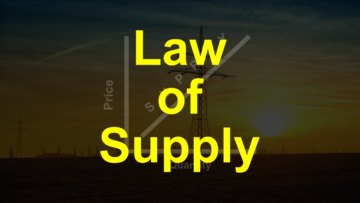Before understanding supply, we have to understand the term stock.
Stock: Generally, the meaning of stock and supply is considered to be the same. But these are different from each other. Stock means the total quantity of a commodity which is available with the seller* in the market at any time and supply means the stock which the seller is ready to sell in the market.
Supply is a very important fundamental concept of economics because supply plays a vital role in running the economy. The economy of any country depends on demand and supply. The more the demand and supply increases, the more the economy grows, which is why every country puts more emphasis on increasing demand and supply.

Table of Contents
What is Supply?
Meaning of Supply
Supply means the quantity of a commodity that a seller is willing to sell at a specific price at a specific time. If the seller does not want to sell the product to the buyer even if he has stock of the product, it will not be called supply, supply will be called only if the seller is willing to sell the product to the buyers.
The supply of the product completely depends on the market conditions like seller’s interest, buyer’s interest, government policy, availability of manufacturer, availability of raw material etc.
Definition of Supply:
According to McConnell – “Supply may be defined as a schedule which shows the various amounts of a product which a particular seller is willing and able to produce and make available for sale in the market at each specific price in a set of possible prices during a given period.”
According to C. R. McConnell and S. L. Brue – “a supply is a scale showing the amount of a good or service that sellers offer for sale in the market at different prices for a while.”
According to Anatol Murad – “Supply refers to the quantity of a commodity offered for sale at a given price, in a given market, at a given time.”
According to Professor Benham – “Supply may mean the amount offered for sale per unit of time.”
Elements of Supply
Following are the elements of supply:
- Availability of seller
- Availability of stock
- Willingness to sell
- Ability to sell
- Ready to sell
- At specific price, time and place etc.
Determinants of supply
Various factors determine supply, some of them are:
1. Price of Commodity:
There is a direct relationship between the price of a commodity and its supply because if the price of a commodity increases then the supply of that commodity also increases. Similarly, when the price of a good decreases, the supply of the good also decreases.
2. Price of Related Commodity:
If the price of a related commodity increases then the supply of that commodity also increases because the seller tries to supply more of the commodity whose price has increased because at a higher price, the seller gets more profit as compared to a lower-priced commodity.
3. Change in Technology:
Technological change also affects supply because as technology changes, the efficiency of production also increases, which reduces the cost of production and increases the supply.
4. Number of Firms:
If the number of firms increases, then the supply of commodity also increases because with more firms the supply of commodity increases. Similarly, if the number of firms decreases then the supply of commodity also decreases because having fewer firms reduces the supply of commodity.
5. Goals/Objectives of the Firm:
The objective of the firm also affects supply. If the objective of the firm is to earn more profit, then the firm creates reduction in supply in the market to sell the commodity at a higher price. Similarly, if the objective of the firm is to increase sales, then the firm provides huge supply in the market and also sells the commodity at low prices in the market.
6. Government Policy:
Government policy also affects supply because business is governed by the government. If the supply in the market needs to be increased then the government gives some relaxation to the business, similarly if the supply in the market needs to be reduced then the government imposes strict restrictions on the business. Like taxes, certification, rules and regulations etc.
7. Expectations:
If the price of a commodity is expected to increase in the future, the seller reduces the supply of that commodity now and increases the supply of that commodity when the price increases. Similarly, if the price of the commodity is likely to decrease in the future, the seller increases the supply of the commodity now and reduces the supply of that commodity if the price decreases.
8. Subsidy:
Subsidies also affect supply because the government uses subsidies to manage the market. If the government needs to increase the supply of particular commodities then the government provides subsidies on those commodities, similarly if the government needs to reduce the supply of particular commodities then the government imposes higher taxes on those commodities.
Read Also:
QNA/FAQ
Q1. What is Supply?
Ans: Supply means the quantity of a commodity that a seller is willing to sell at a specific price at a specific time.
Q2. Write the elements of supply.
Ans: Following are the elements of supply:
1. Availability of Seller
2. Availability of stock
3. Willingness to sell.
4. Ability to sell.
5. Ready to sell.
6. At specific price, time and place etc.
Q3. Write the determinants of supply.
Ans: Following are the determinants of supply:
1. Price of commodity
2. Price of related commodity
3. Change in Technology
4. Number of Firms
5. Goals/Objectives of the Firm
6. Government Policy
7. Expectations
8. Subsidy
Q4. What is stock?
Ans: Stock means the total quantity of a commodity which is available with the seller* in the market at any time.













